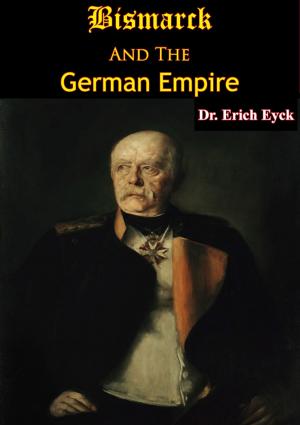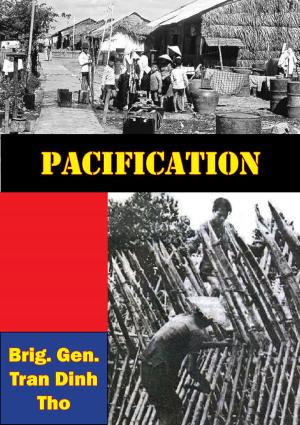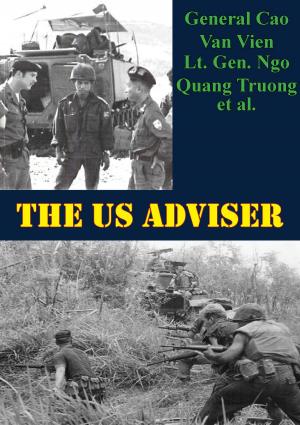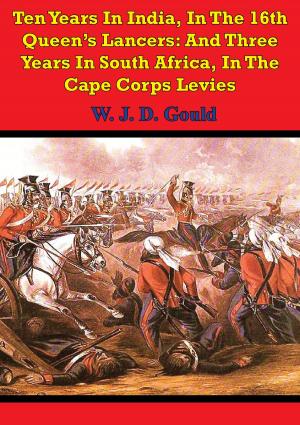Combined Action Platoons In The Vietnam War:
A Unique Counterinsurgency Capability For The Contemporary Operating Environment
Nonfiction, History, Military, Vietnam War, Asian, United States| Author: | Major Ian J. Townsend | ISBN: | 9781786250186 |
| Publisher: | Normanby Press | Publication: | November 6, 2015 |
| Imprint: | Normanby Press | Language: | English |
| Author: | Major Ian J. Townsend |
| ISBN: | 9781786250186 |
| Publisher: | Normanby Press |
| Publication: | November 6, 2015 |
| Imprint: | Normanby Press |
| Language: | English |
In Vietnam, the III Marine Amphibious Force used Combined Action Platoons (CAPs) as one part of its operational level counterinsurgency campaign. These platoons provided security assistance to the South Vietnamese Popular Forces and civic action to the village based population. To measure the operational effectiveness and the current relevancy of this specific type of combined action their activities are evaluated against current Army counterinsurgency doctrine. This monograph demonstrates the value of the CAPs as one element in the context of a counterinsurgency campaign, and how this form of combined action may serve as a tool for Army commanders conducting operational art in future. Independent operations are not the future of American warfare in the 21st Century. Contemporary thought about the future of American warfare is that the “conventional forces of the United States Army will have an enduring requirement to build the security forces and security ministries of other countries.” Some form of combined action will be a required in American military operations for the foreseeable future. Given this truth, CAPs provide a practical historical example of a combined action technique that can serve as a tool for the future.
In Vietnam, the III Marine Amphibious Force used Combined Action Platoons (CAPs) as one part of its operational level counterinsurgency campaign. These platoons provided security assistance to the South Vietnamese Popular Forces and civic action to the village based population. To measure the operational effectiveness and the current relevancy of this specific type of combined action their activities are evaluated against current Army counterinsurgency doctrine. This monograph demonstrates the value of the CAPs as one element in the context of a counterinsurgency campaign, and how this form of combined action may serve as a tool for Army commanders conducting operational art in future. Independent operations are not the future of American warfare in the 21st Century. Contemporary thought about the future of American warfare is that the “conventional forces of the United States Army will have an enduring requirement to build the security forces and security ministries of other countries.” Some form of combined action will be a required in American military operations for the foreseeable future. Given this truth, CAPs provide a practical historical example of a combined action technique that can serve as a tool for the future.


![Cover of the book History Of The Indian Mutiny Of 1857-8 – Vol. II [Illustrated Edition] by Major Ian J. Townsend](https://www.kuoky.com/images/2014/june/300x300/9781782892083-iqq3_300x.jpg)


![Cover of the book Advice And Support: The Early Years 1941-1960 [Illustrated Edition] by Major Ian J. Townsend](https://www.kuoky.com/images/2014/august/300x300/9781782899068-i9lY_300x.jpg)


![Cover of the book A Narrative of The Siege Of Delhi with an Account of The Mutiny at Ferozepore in 1857 [Illustrated Edition] by Major Ian J. Townsend](https://www.kuoky.com/images/2016/july/300x300/9781786259622-jIa9_300x.jpg)
![Cover of the book Vietnam Studies - RIVERINE OPERATIONS 1966-1969 [Illustrated Edition] by Major Ian J. Townsend](https://www.kuoky.com/images/2014/august/300x300/9781782893646-410G_300x.jpg)


![Cover of the book First Russia, Then Tibet [Illustrated Edition] by Major Ian J. Townsend](https://www.kuoky.com/images/2016/october/300x300/9781787202306-yexd_300x.jpg)
![Cover of the book The Stars Bear Witness [Illustrated Edition] by Major Ian J. Townsend](https://www.kuoky.com/images/2015/november/300x300/9781786254757-THHk_300x.jpg)

